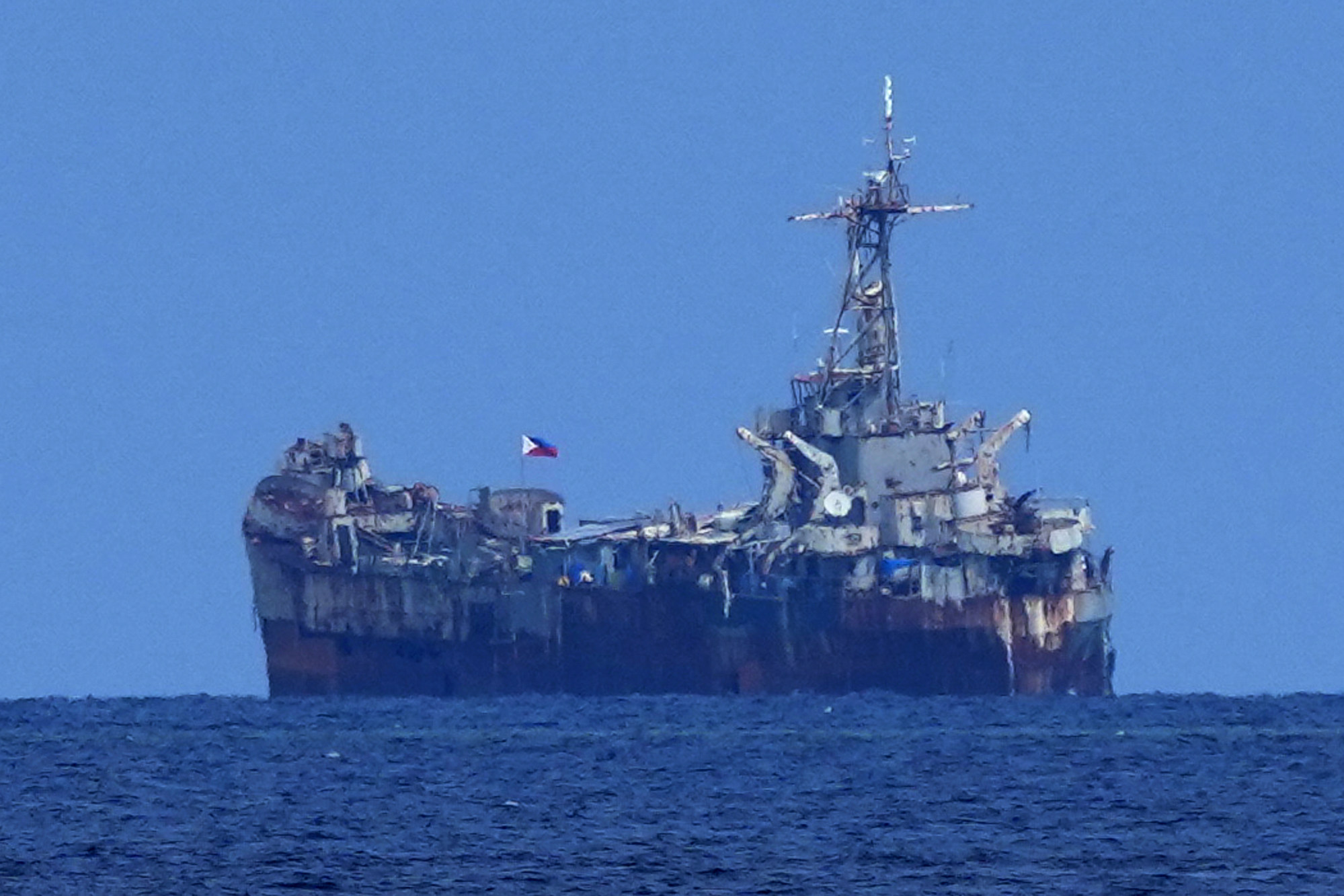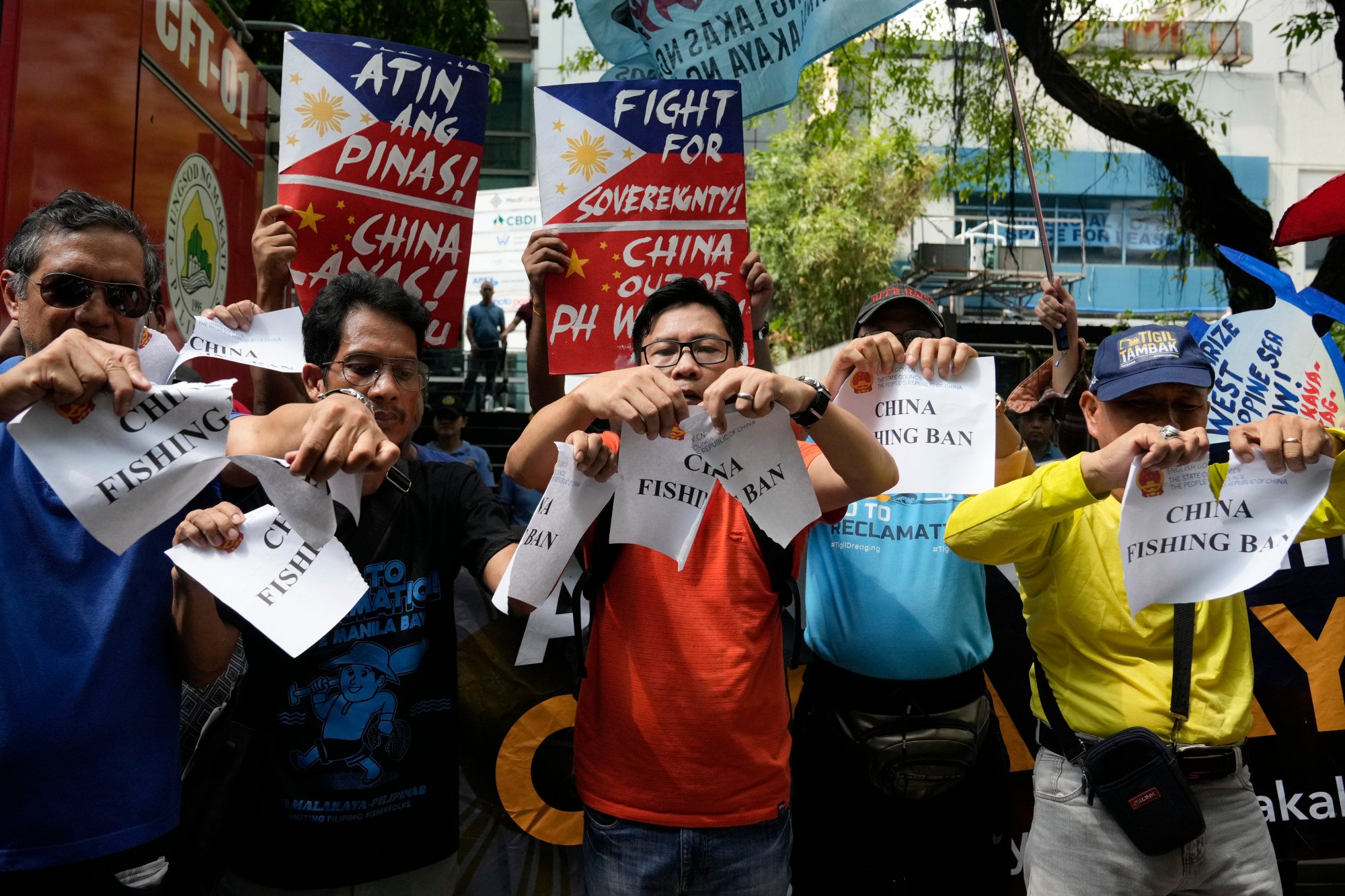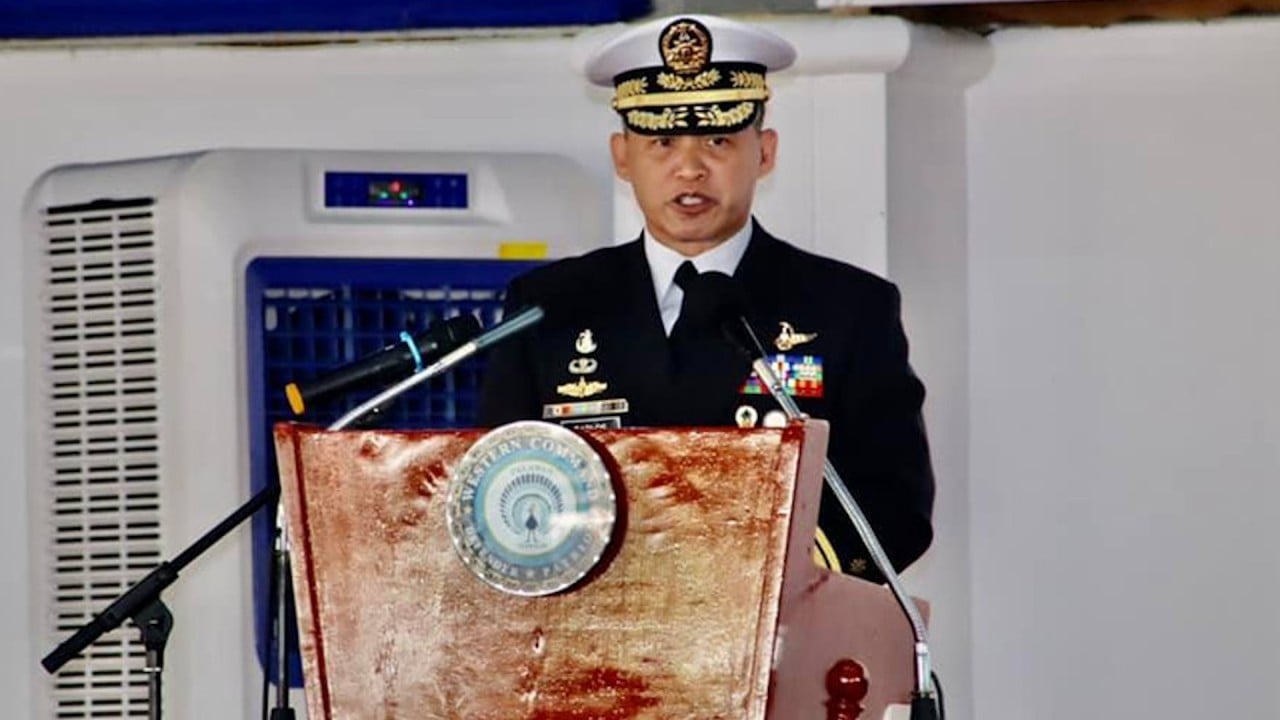Manila and the United States are bound by the long-standing 1951 Mutual Defence Treaty (MDT) that calls on both sides to help each other in times of aggression by an external power.
In a statement on Tuesday, Philippine military chief General Romeo Brawner said the Chinese coastguard “has no right or legal authority to interfere with our legitimate operations or damage our assets within our exclusive economic zone (EEZ)”.
“This reckless and aggressive behaviour has caused bodily harm and constitutes a blatant violation of international maritime law, Philippine sovereignty, and sovereign rights,” Brawner added, noting that China’s actions also “pose significant risks to regional stability”.
Despite the incident, Brawner said his side remained committed to upholding the rule of law and would collaborate with international partners “to ensure and secure peace and stability across the West Philippine Sea and the Indo-Pacific Region”.

Beijing has blamed Manila for the incident in the Second Thomas Shoal, a flashpoint in the South China Sea that has seen numerous clashes between both sides over territorial disputes. The Chinese said the Philippine vessel had “ignored repeated solemn warnings”.
Jose Antonio Custodio, a defence analyst and fellow at the Consortium of Indo-Pacific Researchers, told This Week in Asia that Monday’s incident did not warrant the activation of the MDT, noting the loss of a thumb of a sailor, though regrettable, did not qualify as life-threatening.
“Loss of life and sinking of vessels or downing of aircraft of the Philippines by China would be considered enough to warrant US heightened involvement. But even that will follow a lot of diplomatic exchanges between Manila and Beijing,” he said of a likely scenario in which the treaty would be observed.
Dangerous actions threaten peace
US Deputy Secretary of State Kurt Campbell spoke about the incident in a phone call with his Philippine counterpart Maria Theresa Lazaro. They agreed that China’s “dangerous actions threatened regional peace and stability”, according to State Department spokesman Matthew Miller.
Campell reaffirmed the MDT, saying it “extends to armed attacks on Philippine armed forces, public vessels, or aircraft – including those of its coastguard – anywhere in the South China Sea,” Miller said.

US Vice-President Kamala Harris, who in 2022 visited Palawan, an island in the Philippines facing the South China Sea, said the US had a “profound stake in the future” of the region and stood ready to support the Philippines.
Abdul Rahman Yaacob, a research fellow in the Southeast Asia Programme at the Lowy Institute, said the US might not want to escalate the situation.
“Any US military intervention may lead to a military confrontation with China. In turn, such a scenario may lead to a wider military conflict across the Indo-Pacific region between the two powers,” Yaacob said.
“At this point, the US is providing massive arms supply to Ukraine and Israel and is involved in the Red Sea to keep the sea lanes there open. I do not think Washington is keen to open up a new front when it is already bogged down in Europe and the Middle East.”
The Chinese government is also keen to avoid a conventional war with the US, according to Yaacob.
Their [China’s] navy could be a paper tiger in an actual military conflict with the US
“Their navy, although the largest in the world in terms of number, could be a paper tiger in an actual military conflict with the US,” he said.
A red line that China would have to cross for the US to enter the fray would be if Beijing were to use military firepower such as missiles and guns to cause injury or even death to Filipino servicemen, Yaacob said.
“However, China is less likely to do so. China will likely use grey-zone tactics without firepower to intimidate the Philippines. The seizure of the two Philippines lifeboats is just a start.
“If there is no strong response from Manila, China will be emboldened to step up its tactic and begin seizing and damaging Filipino vessels from now on,” he warned.
One possible option for Manila to indicate to China that the incident is serious is by expelling a Chinese diplomat or recalling Manila’s ambassador to Beijing for consultation, according to Yaacob.
Another option was for the US and the Philippines to work out operational and tactical strategies to ensure the continuous resupply of the Filipino troops deployed on the Second Thomas Shoal, Yaacob said.
“They have to be creative, for example, should Filipino boats be equipped to ram and damage Chinese boats? Are there non-lethal weapons that can be used to repel Chinese boats and personnel when they come nearer to Filipino boats? What about deploying a helicopter operating from a ship for supply runs?”
Mixed signals
Political analyst Edmund Tayao, president and CEO of the Political Economic Elemental Researchers and Strategists, said it was anybody’s guess as to whether the US would comply with the MDT.
“The US recently has been consistently resolute with its pronouncements of commitment but if we are to review statements before, at least with the past four presidents or so, we have been getting mixed signals.
“So we can only hope they will be consistent and in a difficult event of a shooting incident actually respond promptly on our side,” Tayao told This Week in Asia.
There were similar incidents in the past that did not elicit a firm response from the US and it was not clear what would be “the trigger” for Washington to live up to its pronouncements, he added.
American security analyst Raymond Powell, also director of SeaLight – a project based in Stanford University that aims to track maritime grey-zone activities – told This Week in Asia that Manila and Washington should begin formal consultations on the MDT immediately.

“That would offer a mechanism for formal consultation at levels senior enough to take concrete action, and would alert China that it is in danger of bringing the US deeper into this dispute,” Powell said.
China’s aggressive actions suggest it believes the Philippines would ultimately back down and the US would not intervene, according to Powell.
Crossing the Rubicon
Suharto Ambolodto, a parliamentary member of the autonomous Muslim region in the southern Philippines, said Manila and Beijing needed to return to negotiations before it was too late.
“The question is not whether an incident has ripened invocation of the US-PH Mutual Defence Treaty. It’s what we have done to avoid the situation deteriorating. Parties should have exercised utmost caution that grey zone situations do not breach the threshold of armed conflict,” Ambolodto told This Week in Asia.
“The risk will be present and will become more imminent when the perpetrator becomes more aggressive. The parties will only know they have crossed the Rubicon when they will note that they have already mistakenly breached the threshold.”
Additional reporting by Associated Press


